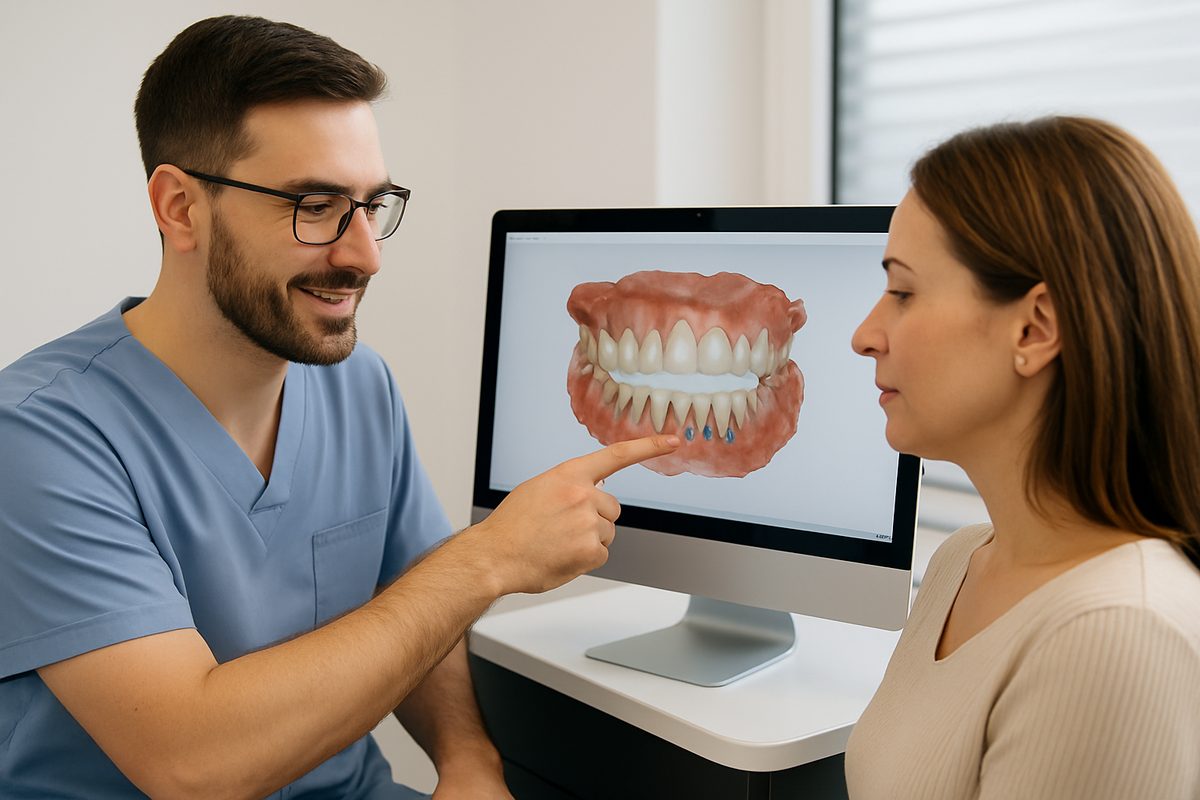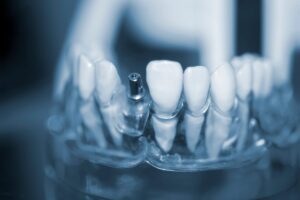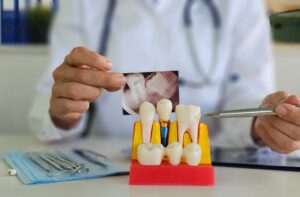Implant supported dentures are dentures anchored to dental implants placed in the jaw. Unlike traditional dentures that rest on the gums, these use titanium implants as stable anchors. That support greatly reduces slipping and improves chewing and speech. Implant supported dentures can be removable or fixed, and they help preserve jaw bone by transferring chewing forces to the bone like natural teeth.
Types of Implant Supported Dentures
Removable overdentures
Removable implant overdentures snap onto ball attachments or clip onto a bar that connects implants. Ball/clip systems are simpler and usually cheaper. Bar-retained overdentures spread force across implants for extra stability. Both types let patients remove the denture for cleaning. They work well for many people who want improved stability but still prefer a removable option.
Fixed full-arch options (All‑on‑X)
Fixed options, often called All‑on‑4 or All‑on‑X, attach a full arch of teeth permanently to four or more implants. These are not removed daily and act more like natural teeth. Fixed prostheses suit people seeking a long-term solution with strong chewing ability. They may require more implants and precise planning but offer a highly stable, natural-feeling result.
Who Makes a Good Candidate for Implant Supported Dentures in Idaho Falls, ID
Good candidates are healthy adults missing many teeth or struggling with loose dentures. Key factors include adequate jaw bone, controlled gum disease, and overall medical health. A dental exam and 3D imaging will show bone volume and the best implant plan. Many patients who once thought they were not candidates can be treated after bone grafts or other preparatory procedures.
Special considerations
Smoking, uncontrolled diabetes, and certain bone medications can affect healing and increase implant risk. Older age alone is not a barrier, but medical conditions and medications matter. Your dentist will review your health history and medications to decide if implant supported dentures in Idaho Falls, ID are a safe choice for you.
How the Treatment Works: Step-by-Step
Consultation and planning
The process starts with a consultation and exam. Cone Beam 3D imaging and digital planning map your jaw and identify implant sites. This step creates a surgical guide to place implants precisely and predict the final result. Clear planning improves outcomes and reduces surprises during surgery.
Implant placement and healing
Implants are placed in a minor surgical visit. Healing takes several months while bone fuses to the implant (osseointegration). Many patients receive a temporary denture or provisional bridge during this time. Pain is usually manageable with medication, and follow-up visits check healing progress.
Final restoration
After healing, your dentist fits the final denture. This includes adjusting bite, tone, and shape for comfort and esthetics. Final prostheses use durable materials for a natural look. Your team will check fit and teach you care techniques to keep the restoration healthy.
Benefits vs. Risks
Benefits include stronger chewing, clearer speech, less slipping, better comfort, and bone preservation. Many patients report greater confidence and improved quality of life. Risks include infection, implant failure, need for bone grafts, and possible damage to nearby structures. Risks are reduced with careful planning, good oral hygiene, and managing medical issues.
Cost, Insurance, and Financing Options
Cost depends on the number of implants, choice of fixed versus removable, and any grafting or extractions needed. Fixed All‑on‑X options are typically more costly upfront than removable overdentures. Dental insurance often limits implant coverage, so many patients use payment plans, third‑party financing, or in‑office plans. Your dental team can provide an estimate after the planning visit.
Aftercare and Long-Term Maintenance
Daily hygiene matters: brush implants and dentures, use interdental brushes, and clean attachments if you have a removable overdenture. Regular checkups every 3–6 months help catch problems early. Fixed prostheses may need professional cleanings and occasional adjustments. See your dentist if you notice looseness, persistent soreness, swelling, or unusual pain.
Why Choose Bird Dental Studio in Idaho Falls for Implant Supported Dentures
Bird Dental Studio in Idaho Falls offers experience with All‑on‑X and implant restorations led by Dr. Jayson Bird. The office uses Cone Beam 3D imaging for precise planning, Yomi robotic guidance for accurate implant placement, and CEREC technology for efficient restorations. IV sedation is available for anxious patients. The team focuses on clear communication and long-term outcomes.
How to Get Started
Bring any dental records, a list of medications, and your insurance information to the consultation. The first visit typically includes an exam, 3D imaging, and a treatment discussion. Decisions on timing and finances follow the plan. To schedule with Bird Dental Studio, new patients call (208) 886-1280 and current patients call (208) 529-0999. The office is at 3381 Merlin Dr, Idaho Falls, ID 83404.






